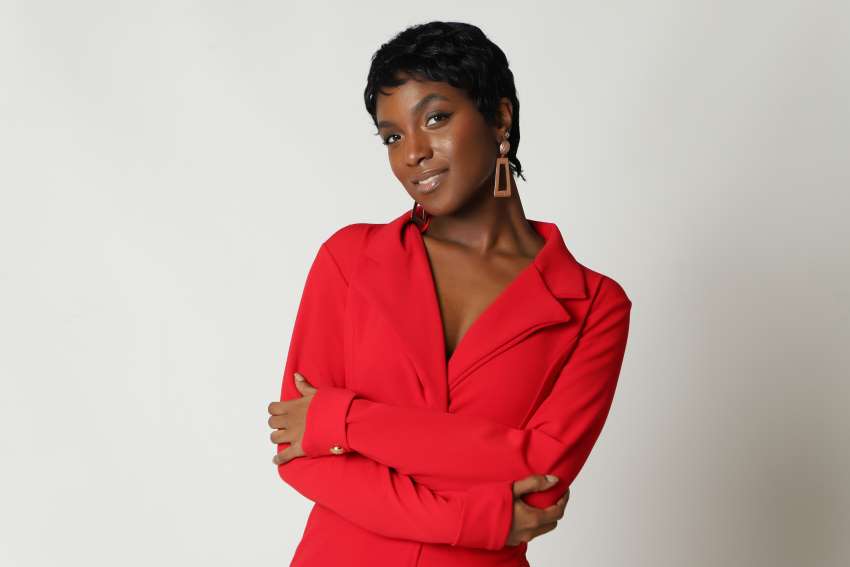SO, YOU done some reading, but you’re no closer to understanding what the Metaverse is, right? Have no fear, Lifestyle caught up with Tara Collingwoode-Williams, an expert in the field.
Not only is Collingwoode-Williams well versed on the multiple facets that present themselves as being an integral part of what the Metaverse actually is, she’s also on a mission to ensure that black people are represented in this nascent space, including your avatar.
“The Metaverse is a broad concept, as it focuses on bringing together different technologies which in their own right are still growing and maturing,” Collingwoode-Williams explains.
“But essentially it’s about building a virtual community and figuring out how to connect in different social contexts within it.”
Collingwoode-Williams isn’t like most of us — she’s been aware of the Metaverse for a very long time, and this knowledge inspired her walk into all things VR/AR (virtual reality/augmented reality).
Currently completing her PhD as part of the IGGI (Intelligent Games and Games Intelligence), Collingwoode-Williams is also developing the next generation of technological minds as a lecturer in computing at the famous Goldsmiths University in London.
If the advancement in this online experience really represents the impending way forward, and all signs are that the world is heading for the Metaverse in some shape or form, then for Collingwoode-Williams, it’s important black people have a hand in steering the development in terms of what these platforms look like.
“It’s important to highlight the interdisciplinary nature of the Metaverse and how this is allowed for many industries to find their place in its emergence and development,” Collingwoode-Williams says.
“During lockdown, we saw many people take to remote work and socialising in VR, as a way to attempt to keep the same level of productivity whilst escaping their isolation with applications such as Rec Room and Alt Space.”
“With the emergence of these social spaces we have embodiment (the feeling of owning a virtual body) and this gives the user the agency to depict how they wish to be perceived in the virtual world,” she adds.
“I’m a black woman in tech, and I have many other interests and attributes I feel define me, I’m now in a position to explore the different creative ways I can portray my identity in VR, it doesn’t matter if I’m short or tall, now I have the opportunity to change perspectives or even the playing field.
“Not only that, but it is shining a light on new ways we can communicate, interact with each other and share moments.

“Meeting and slapping a high five even though we are miles apart. We could even have this meeting in the Metaverse.
“We’d see each other in our chosen avatar form and depending on how we are immersed, the technical set-up, you will be able to see my non-verbal communication, how close I lean in, where my focus is, I can point at something within the 3D space, you’d have the means of turning around to look at it, I can bring in an asset I made for us to interact with or take a virtual picture — 360 stereo version and head tracking and hand tracking offered by headsets such as the Oculus Quest 2 provide these capabilities.”
Collingwoode-Williams admits she has always loved games, always loved the feeling of escape the virtual world has to offer.
Her actual area of expertise is the ‘Embodiment and Social Interaction in immersive Virtual Reality’ and she has worked with North Virginia’s Serious Games Institute consulting on an augmented reality learning solution for medic training, the George Mason University on their Mixed Reality Module, and with Facebook’s USTechSolutions publishing a paper at IEEE VR 2020 about their work together.
Her passion for seeing the development of a diverse Metaverse space is forged from an educated standpoint.
“There is a lot of research surrounding the impact of embodying an avatar, for example, influencing the user’s self-perception and behaviour towards others. In one study, research suggested that participants assigned taller avatars behaved more confidently in a negotiation task.
“Research also suggests that embodiment can even explore complex psychology such as implicit racial bias, but perhaps more on that later.
“In line with my previous point on user-generated content, there’s a need to provide tools that democratise content creation, an advantage can be giving users more freedom on how they customise their avatar’s look on different social platforms.
“Larger selections of Afro styles, for example, Bantu knots, box braids. Black inspired accessories. Do you see something missing? You can bring it to the Metaverse. You can bring it.”


Comments Form